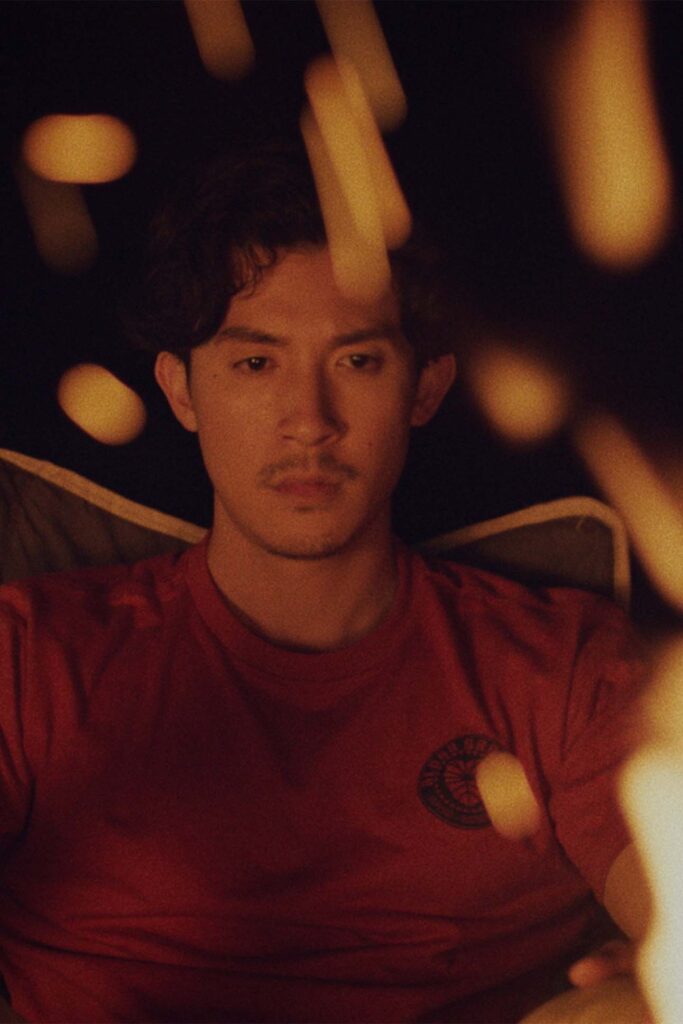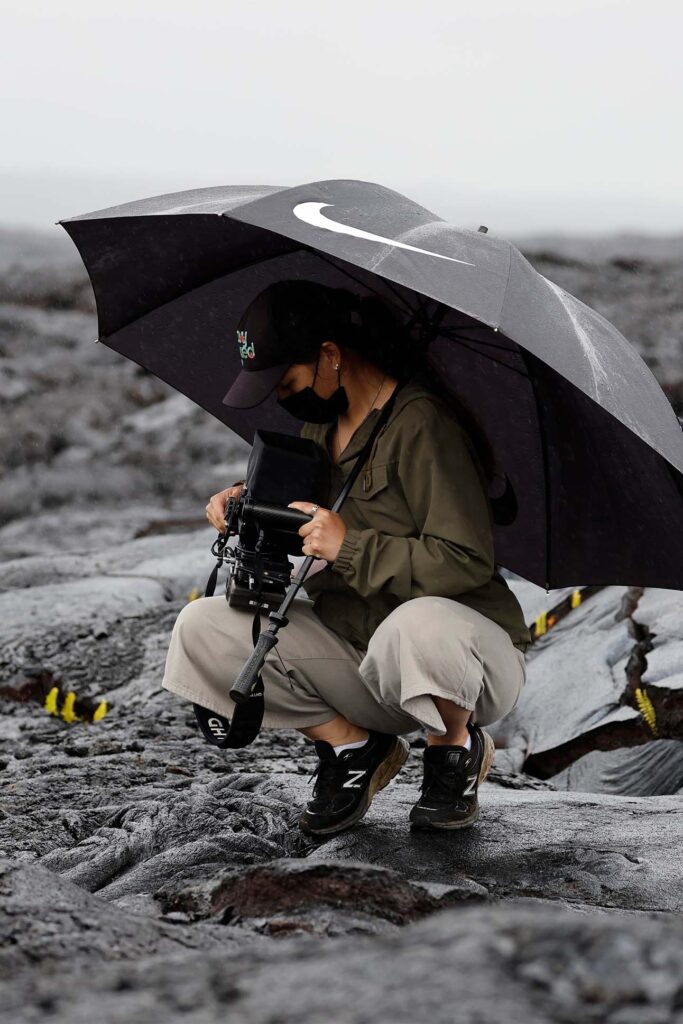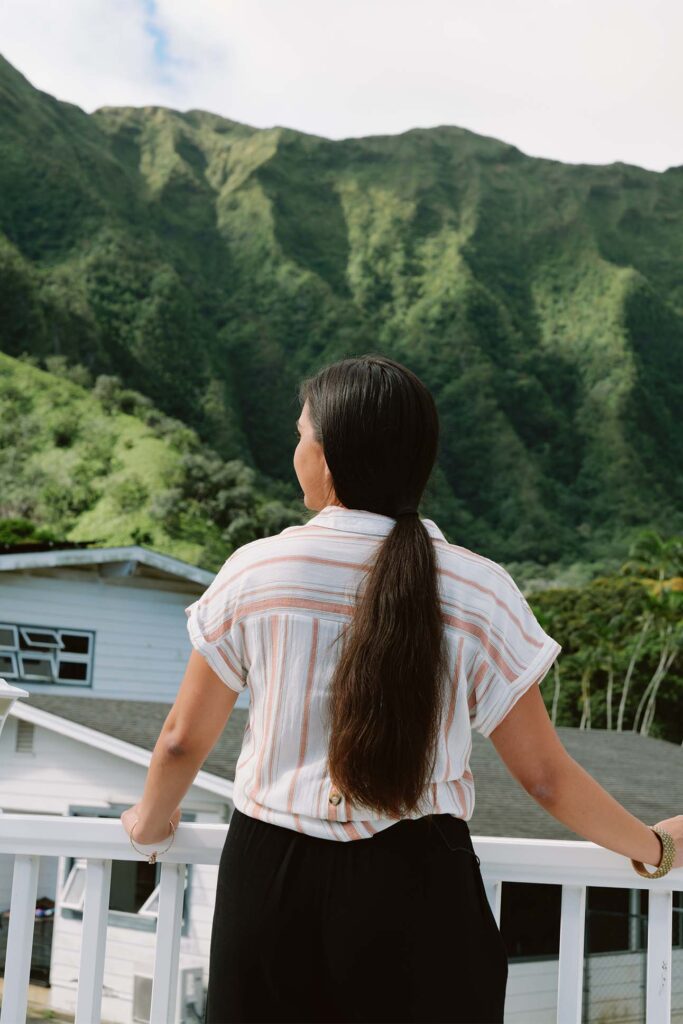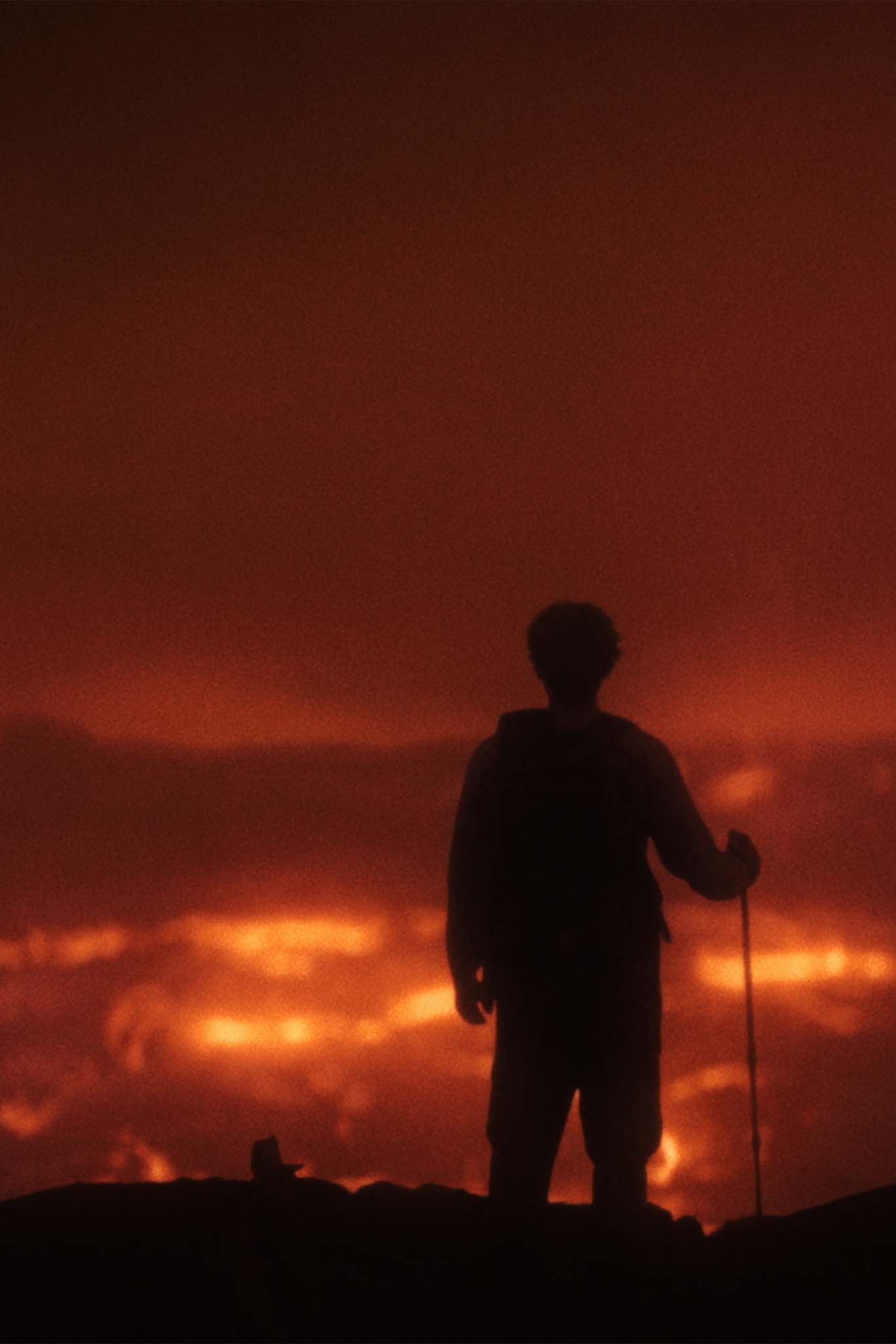If stories are confessions, the film Inheritance is about the struggles to understand what we confess. Shot predominantly around the hardened, liminal lava fields of Kalapana, the 18-odd-minute short follows Kelsey Akioka, a young Japanese-Hawaiian man, as he scrapes by as a nature photographer while raising a son in his father’s house in Hilo, Hawai‘i Island.
Played by actor Aoi Takeya, Kelsey expertly captures frame upon frame of Kīlauea’s active lava flows, which viewers soon learn are reduced to postcards he peddles to tourists to make ends meet. As yet another customer hard-bargains for the lowest price, it’s clear these transactions feed Kelsey’s oblique dissatisfaction about his place in the world. Decidedly slice-of-life, and a bit opaque, Inheritance leans into the murkiness of calling Hawai‘i home, where layers of stormy colonial histories, extractive commerce, and the persistent temptation to flee for a more affordable cost of living all complicate one’s daily reality and sense of self.


“Filmmaking, early on, was a tool for me to process and understand things I didn’t know how to talk about,” explains the film’s director, Erin Lau, who as a shy child growing up in Kahalu‘u on O‘ahu learned to use cameras and editing software before the age of 10. As a fourth-grader, Lau shot promotional videos for her father’s nonprofit Hawaiian slack-key guitar foundation, and as an after-school hobby, she recut scenes from her favorite anime shows into fan edits for YouTube.
Throughout her adolescence, these hard skills inevitably led Lau to weave short narratives around prototypical experiences like “teen angst and first heartbreaks,” she says, often influenced by the magical realism of Guillermo Del Toro. As a film student at Chapman University, Lau expanded her cinematic influences, citing Kelly Reichardt and Hirokazu Kore-eda as her heroes for their meditative pacing and sympathetic characters. They make movies that are more akin to, as Lau describes them, “a window into these people’s lives, where the camera is just passing through. I love how grounded and close their films cling to life.”

With its subdued performances and determination to not over-explain, Inheritance carries the DNA of that same sensibility, along with an emotional undercurrent that landed the film at Tribeca and earned it the Made in Hawai‘i Best Short Film award at the Hawai‘i International Film Festival in 2022. Its wayward characters and themes of isolation and despair, made ever-relevant by the pandemic, were born out of “deeply personal conversations” that Lau was having with her co-writer and longtime collaborator, Justin Omori. Both Hawai‘i-born filmmakers now based in Los Angeles, they commiserated over the literal and figurative distance they were feeling to the islands and their cultures. “My identity as a Hawaiian woman felt more and more out of reach,” Lau admits, adding that the lockdown amplified that sense of disconnection.
The duo began writing the script soon after, drawing on Omori’s upbringing as the son of a lava photographer who ran a gallery in sleepy Hilo. Omori would lug heavy photography equipment across lava fields for his dad, who would then sell his photos to tourists intent on “haggling for lower prices, yet are wearing Rolex watches,” Lau says. Their ambition with Inheritance, she continues, was to recognize the labor and sacrifices of their ancestors while reflecting on “what their progeny gained and lost in that process.”


In Inheritance’s opening frames, viewers are met with archival images of Japanese immigrants tilling sugarcane on Hawai‘i’s plantations at the turn of the 20th century, a solemn sequence foregrounding the exploitative industry on which the islands’ territorial economy was built. Eventually, this cascade of imagery is interrupted by a solitary—and, perhaps, hopeful—orb of light strapped to the protagonist’s head as he traverses barren lava fields in the dark, making his way by headlamp to his destination at the summit eruption of Kīlauea.
It’s a scene that, in many respects, bears a glimmer of Lau’s ongoing interests as a filmmaker: venturing into the indiscernible terrain of generational traumas, unspoken wounds, issues of place and belonging. Unlike her previous efforts, Inheritance centers on a male protagonist, perhaps indicating that she doesn’t feel indebted to tell a woman’s story just because she’s a woman. Her head and heart, more than anything, is set on creating characters “on the edges of community, unsure of their place in the world,” Lau says, but with a quiet confidence.


